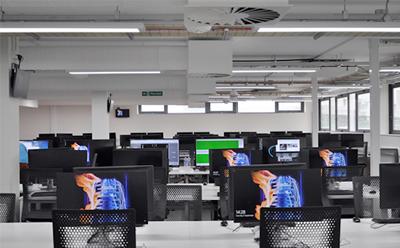Computing and ICT (information and communication technology) is such a vast industry with so many sectors, that each sector could have its own section on this site. Computers were originally designed by mathematicians and today computer science is still very mathematical; hence, a degree in mathematics can provide you with a pathway into this fast moving and constantly evolving industry. Completing a conversion MSc may enhance your employability in this sector, especially if your degree lacked IT and programming content.

Role:
There are so many roles in ICT and new roles are being created all the time. Below is a simplified breakdown of the kind of the employers and roles in ICT:
- Organisations that use ICT: roles exist in the development of ICT solutions within organisations; roles also exist for the set-up and maintenance of their systems.
- Organisations that produce hardware: roles exist within manufacturing and design of ICT hardware.
- Organisations that produce software: roles exist within the programming and design of software, both for the general market and bespoke solutions for clients.
Skills required:
- Strong ICT/programming skills
- Good numerical and logical skills
- Good communication skills
- Ability to work alone and in a team
Advantages:
- Use your mathematical skills in a fast growing and evolving industry
- Many different roles and job types exist
- Jobs in this industry are often well paid
- There are opportunities for consultancy and, perhaps, self-employment
Things to consider:
- Some employers may require you to complete a relevant MSc/conversion.
- ICT is a very popular and competitive sector. Many employers look for relevant work experience; look to gain work experience to improve your employability.
Other University of Southampton sites
Links to external websites
The University cannot accept responsibility for external websites.